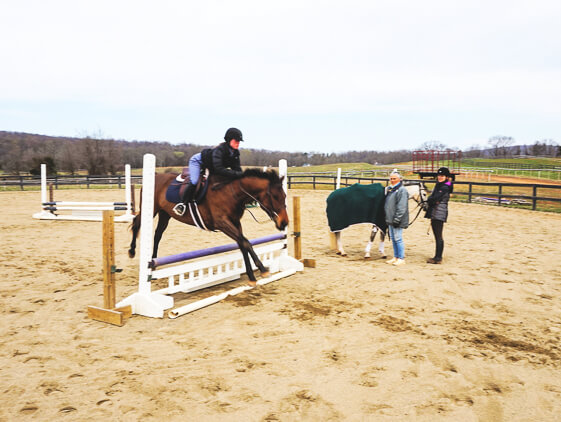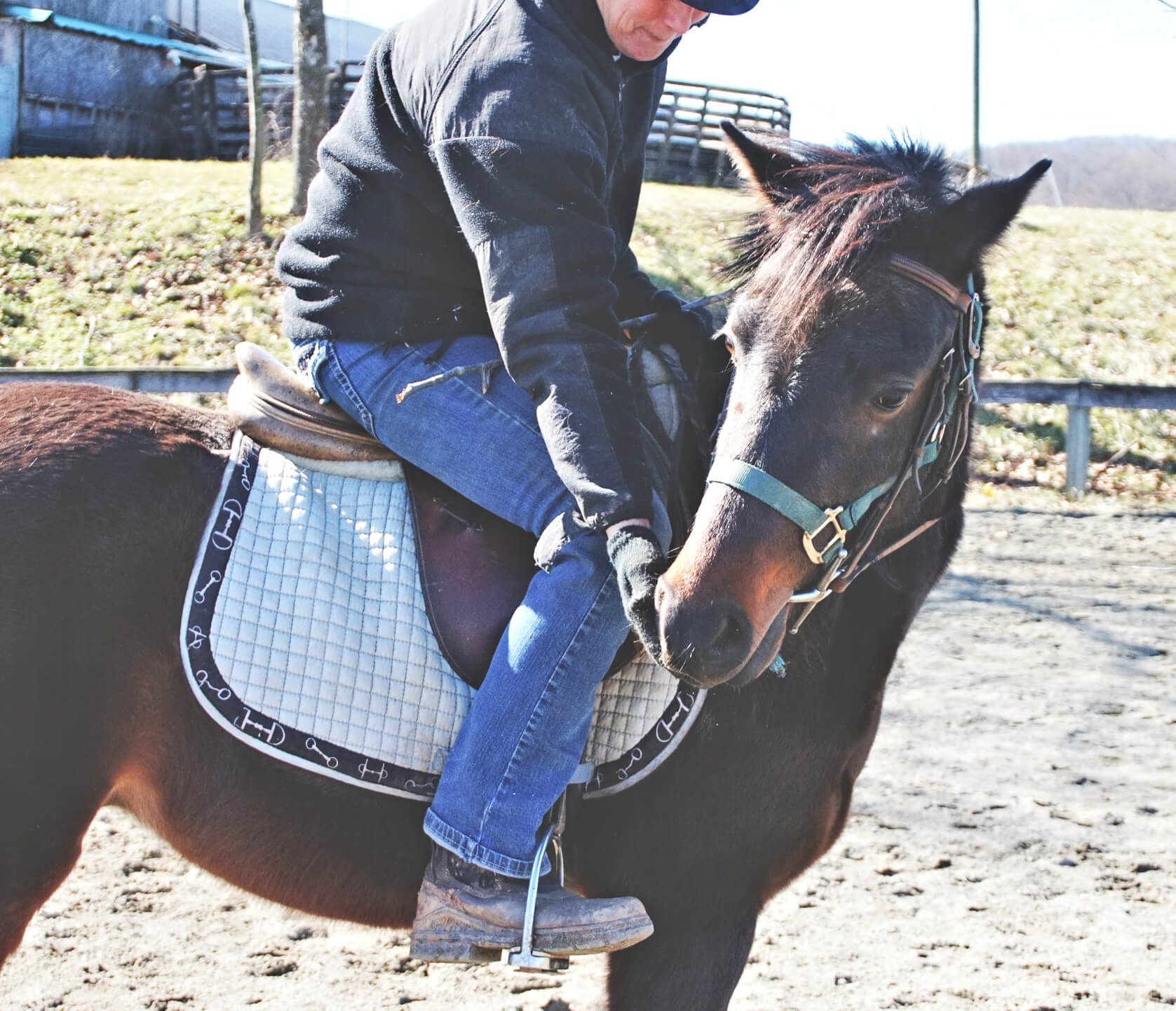
I see this question all over the internet. “What do I do to become a horse professional?” usually coming from a teenager or someone very early in their career. I understand – you love horses and want to have a lifetime with them. Working with horses would be so fulfilling, and you know you’d love your life, spending every day at the barn, and riding 20 horses a day.
I hate to burst your bubble, but it’s not all it’s cracked up to be. But, hear me out. I’m not saying you can’t work with horses, but to rethink your idea of working with horses. Let’s start with the problems of the most obvious horse career.
The Professional Trainer or Barn Manager
The most obvious job with horses is being a professional trainer, to include training horses, teaching lessons, and showing horses for clients. I’m going to lump this together with barn manager because they frequently end up being the same job. It seems like a dream job, spending all day, every day with horses. I don’t disagree with this. I spent some time as a riding instructor and helped my trainer work horses as a teenager, and frankly, it was amazing. It is fulfilling to teach others about horses and riding, see the joy on their faces, and watching a horse develop is amazing. I was a teenager, who didn’t have to pay for a mortgage, health insurance, or any other bills so the low wage I received seemed like a huge amount of money, especially to do something I loved so much.
It seems like a dream life but look at the whole picture. With a low wage, it’s going to be hard to pay your bills, and it will be hard to save up to buy things like a house, or a truck and trailer. Not only is it a low wage, but it is long hours. Horses don’t take a day off. You’re going to be taking care of them 365 days a year, in the rain, in the snow, during tornados, on Christmas, while you’re moments away from giving birth. With the way the industry currently is, there aren’t many, if any, vacation or sick days, and additional benefits, such as health insurance, are not common. If you have more clients/more horses, you’re going to be spending hours a day taking care of horses. Do you want to muck 20 stalls a day, every day? I have done it before, and I sure as hell don’t want to do it again. There’s a reason trainers try to get working students to unburden themselves of this task – it sucks.
Most of the horses that are brought to training are problem or green horses. People don’t bring their well behaved, kind horse to a trainer to be trained. They bring their rank, unruly horse to be fixed, or their scared, unexposed, untested horse to get exposure. Both types can be dangerous to work with. If you get hurt, you can’t work. If you can’t work, you won’t get paid. You could be completely fine in the morning and have a shattered leg by noon, and with it, your shattered financial future. You won’t get rich with horses. In fact, it’s one of the lowest paid jobs you can have. In most places, this would have you struggling to make ends meet, or even on the poverty line.
For the especially ambitious who want to get paid to ride other people’s expensive horses – well, to be honest, most of you are wanting a pipe dream. It takes a lot of (someone else’s) money in order to be paid to just ride, and not only do you need to be incredible at riding, but you also need to be able to network with those who will pay for you to ride. Which means you need access to those people. Which means you either need to creepily stalk them (I legally cannot recommend this), be so freaking amazingly good that they hear about you, or be part of the same circles already, already competing. Unfortunately, this means you usually have to be born with money because you’ll need money to bring yourself to the highest levels.
For all of these occupations, keep in mind it is a very competitive market. Not only do you want to be a riding instructor/trainer/pro rider, so do about a zillion other horse lovers. The other kids at your barn aren’t there because they hate horses (usually), they are also there because they love horses and want to spend every minute with them. You’re competing with them, as well as every other kid at every other barn in the nation. Which is a reason why if you absolutely must go this route, get a business or marketing degree to give yourself the knowledge to be successful and set your business apart from the millions of others that will pop up. Being a good riding instructor or trainer goes beyond just working with horses, it’s working with people, and it means you’re also running your own business, which includes many things that have absolutely nothing to do with horses.

Equine Science Degree
Let’s pretend the last section didn’t convince you that you don’t want to be a horse professional. The next question is always, “How do I become a horse professional?” Many kids think a life with horses starts with an equine science degree. After all, it’s horses, and that’s what you want to do! But please – don’t get an equine science degree. Banish the thought from your head. I’m going to explain this further below, but let’s first focus on the practical aspect. This degree will not help you get a job in anything other than horses. “But that’s what I want!” you exclaim. Well, no, I promise you that it’s not what you want. Equine Science is an extremely niche degree, applicable to an extremely niche market. The potential careers for ES majors are, riding instructor, barn manager, event manager, salesperson, among others. Do you know what you don’t need a degree to do? All of those positions. You can do any one of those things without a degree. You can learn the horse skills by working at a barn, and even getting paid to do it. Same applies for event manager, or salesperson. You can get a job in that industry, entry level, and work your way up, with no degree. The most valuable part of ES degrees is the business aspect, and that should tell you to get a business degree instead. Even if you are eventually pursuing a veterinary degree, it’s much more valuable to major in biology, or something related to medicine than a worthless ES degree.
When you’re looking for a job, you want to have as much marketability as possible. If you do end up trying to get into the corporate world, an employer will look at your ES degree vs another applicants business or accounting degree, and which do you think will be more relevant? What this boils down to is, if you’re going to spend 4 years of your life at school anyway, spend it on something that will help you in life, not something that will hinder you.
If you disregard this, not only are you looking at low marketability, you’re also looking at struggling to repay your student loans on the very low salaries that an ES degree would get you. You’re looking at a very uncomfortable existence.
P.S. If you are trying to be a trainer, it will look much better on your resume to have 4 years working with a reputable trainer over an ES degree.

The Other Route
This brings me to my personal recommendation. Being an instructor or a trainer is an obvious route to working with horses, but I encourage you to think outside of the obvious route. The 2017 Economic Impact Study showed that the horse industry is worth a staggering $122 billion dollars. That money isn’t being generated from just trainers and riding instructors. There’s a huge market for other things. There are products to be made – tack, grooming supplies, buckets, horse trailers, apparel. There are services that are needed – insurance, farm maintenance, horse transport. There are things we need constructing – barns, arenas, fencing. There’s research to be done – nutrition, medical, environmental. We need our shows run and judged. We need people running the non-profits that fuel competition (USHJA, USEF, breed associations). We need people to keep the equine industry alive. The world is changing and evolving, with new technologies emerging daily/weekly/monthly. The equine world needs to keep up, and you can be one of those people.
Do you do marketing? Organizations, breed, discipline or otherwise, hire marketers. What about accountants? Business needs someone to track the money, including the riding instructors, trainers and professional riders mentioned above. What about design? Could you prototype a safer helmet? Or even just one with a cutting edge, modern design? Feed companies continually research the effects of different feeds on horses. There are positions related to education if you’re looking for a variation of the traditional riding instructor. Or what about something computer science related?
Note that none of the jobs I linked want a degree in equine science. They want a degree in something else, and that skill is then applied to the equestrian world. There’s plenty of people who love horses, but just loving horses isn’t a qualification. The qualification is the technical skill that you learn, either through college, or otherwise (I don’t believe that college is needed for every career, but that’s not the point of this post.)
You can have a comfortable and fulfilling life with horses without working directly with them. Nearly every profession can be applied in some way to the equine world. And, if for some reason you cannot find a position within the horse industry, you will have marketable skills that can be applied outside of the horse industry, which will put you in the financial position to afford the horse lifestyle that you want. Despite not being able to work directly with them, being able to afford them, and all the lessons, shows, tack and apparel you desire is a huge incentive to have skills outside of training horses.
Do you agree? Disagree? Let me know in the comment below, as well as any other advice you might have for the youngsters.

Joan
Woo hoo
rooth
Sounds like a bummer but it’s the truth. My trainer has a law degree (another very useful degree to have in the equestrian hemisphere). Wouldn’t we all like to get paid tons of money for doing something we love to do
Courtney
roothYeah, that would be living the dream…
well done to your trainer! I could see that being very useful with how crazy litigious some people are…